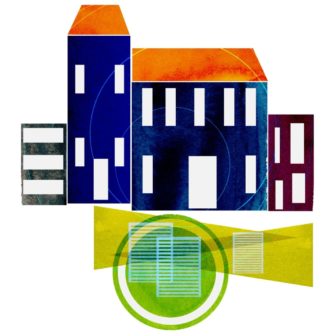 Journalists are under unprecedented attack in today’s high-tech world, and it is watchdog reporters who are on the front lines. More journalists have been killed covering corruption and human rights than covering war in the last 10 years, according to data from the Committee to Protect Journalists. Moreover, the overwhelming number of these are local journalists, by a nine-to-one ratio. Impunity for killing journalists remains shockingly high, with nine of ten journalist murders unsolved.
Journalists are under unprecedented attack in today’s high-tech world, and it is watchdog reporters who are on the front lines. More journalists have been killed covering corruption and human rights than covering war in the last 10 years, according to data from the Committee to Protect Journalists. Moreover, the overwhelming number of these are local journalists, by a nine-to-one ratio. Impunity for killing journalists remains shockingly high, with nine of ten journalist murders unsolved.
Safety Training and Resources
What’s needed is more training in day-to-day protection in the cities, on routine beats, and during investigations. We need security tools that are easy to use. We need to know we’re being surveilled and targeted – physically, digitally, legally.
With this in mind, GIJN has partnered with the ACOS Alliance, so that watchdog media can access state-of-the-art safety and security advice and training. The ACOS Alliance is a coalition of 120+ media organizations, journalist associations, and press freedom NGOs working together to embed a culture of safety within journalism. It provides freelance journalists, editors, and newsrooms with training, guidance, and resources to help them prepare for safety challenges and to meet high standards when reporting even under extraordinary conditions.
ACOS offers free online resources covering Safety Management and Planning, Digital Security, Insurance, Contract Negotiation, Covid-19, and Legal Assistance and also offers safety training, workshops, and consultations that are relevant to investigative journalists.
Please contact GIJN’s Help Desk for further information.
Security Audits
Security is essential for journalists, and for investigative journalists in particular. Tackling the issue, let alone understanding its complexities, can be daunting. GIJN has worked with an expert team at the Ford Foundation to adapt Ford’s Cybersecurity Assessment Tool (CAT) for use by watchdog journalism groups. Our new Journalist Security Assessment Tool (JSAT) offers an online diagnosis of an organization’s physical and cybersecurity strength and resiliency, with recommendations on how to strengthen your security. This tool is also available in these languages: Arabic, Bahasa Indonesia, Deutsch, Español, Français, Hindi, Português, Русский, Türkçe and Urdu.
To check the resiliency and strength of your organization’s physical and cybersecurity efforts, and receive recommendations on steps to strengthen your security, please complete the assessment here. It will take about one hour, although it may require information from several members of your staff, including operations staff or decision makers. You will then receive a score which will help you to prioritize the steps your organization needs to take to be more secure.
Let us know if the JSAT was helpful, or if you have suggestions on how to improve it. You can write to us at hello@gijn.org.
Managing Stress and Trauma
Investigative reporting on survivors of trauma and tragedy requires special skill and sensitivity, and the stresses of watchdog reporting amid trauma, crisis or threat can also take a toll. To help address this, GIJN has partnered with the Dart Center for Journalism and Trauma, a project of Columbia University’s Graduate School of Journalism. Through the Dart Center, media organizations, and independent journalists can access expert advice and training both on how to report violence and tragedy, with proper treatment of victims and survivors, and how to manage the impact of psychological trauma and stress.
Please contact GIJN’s Help Desk for further information.